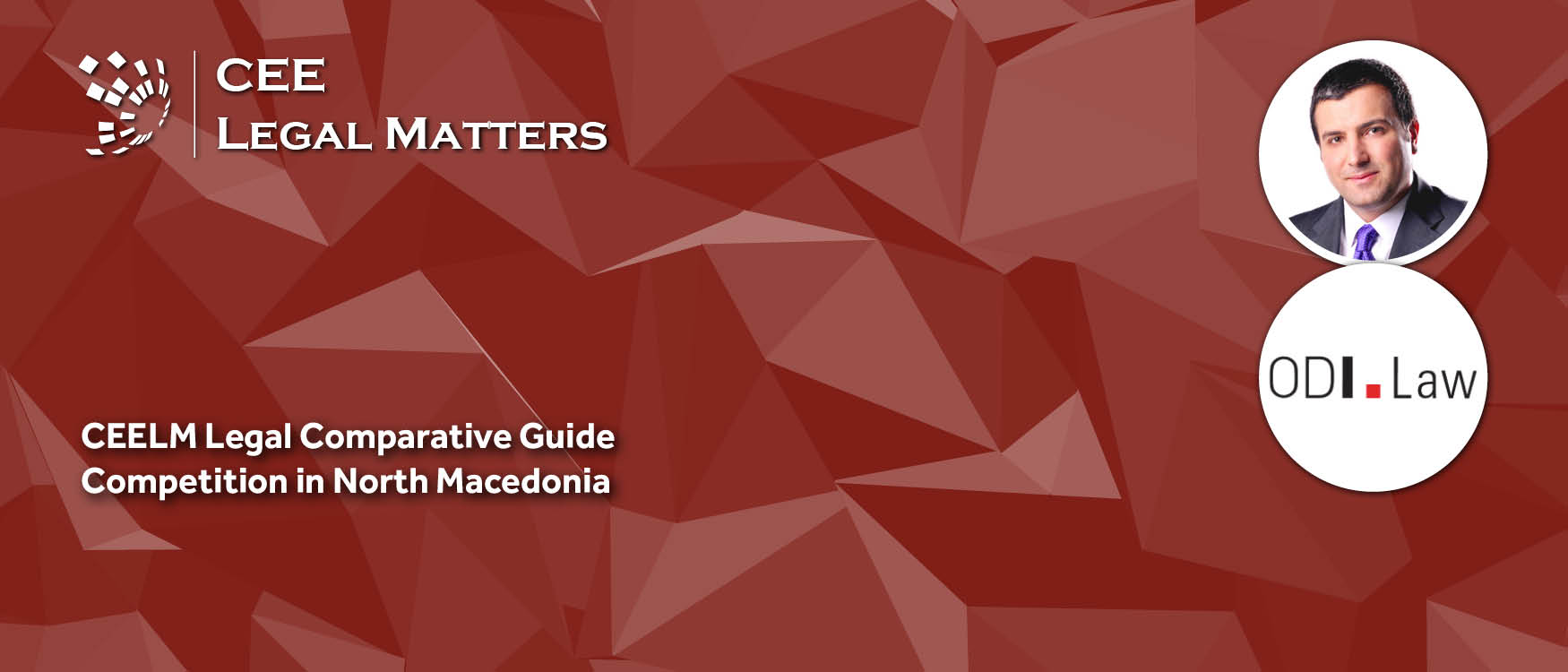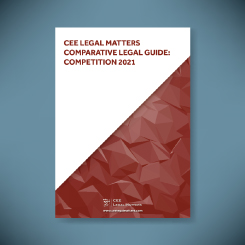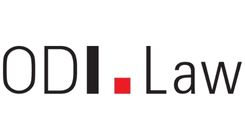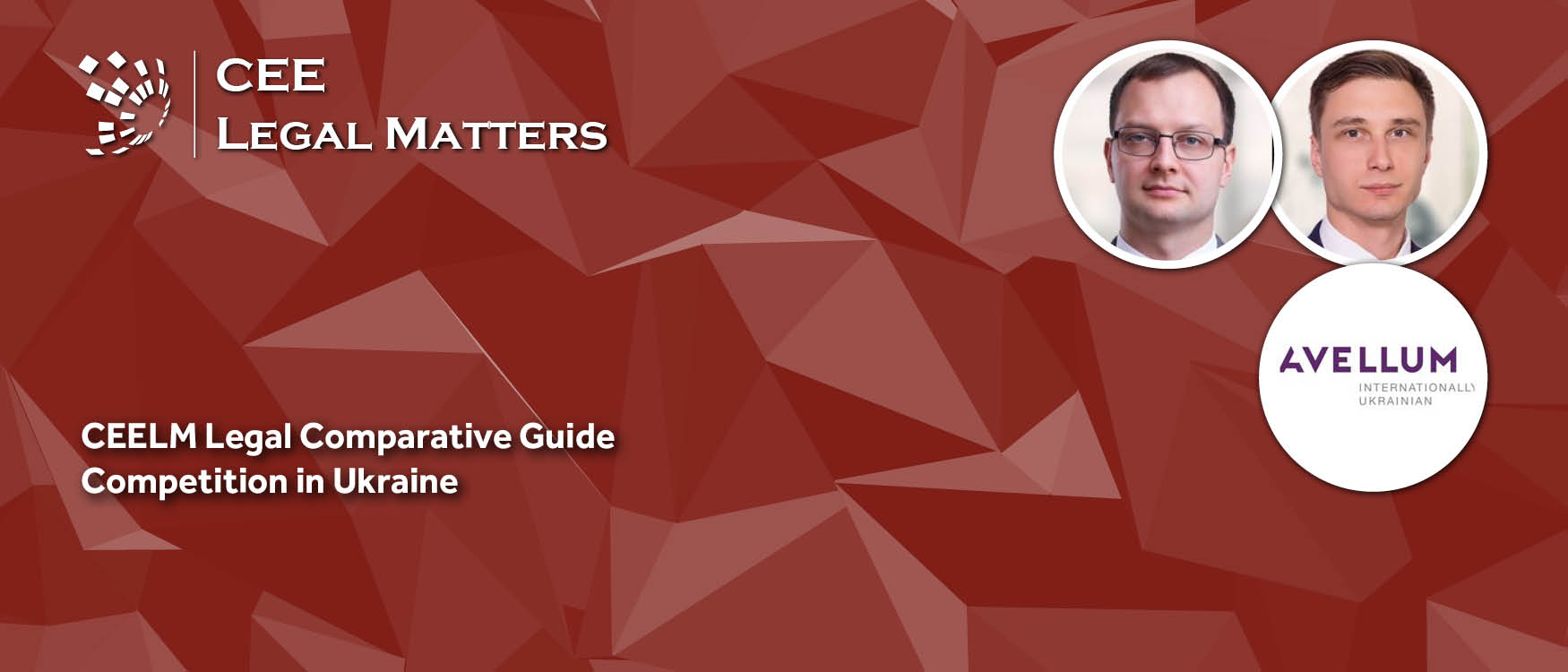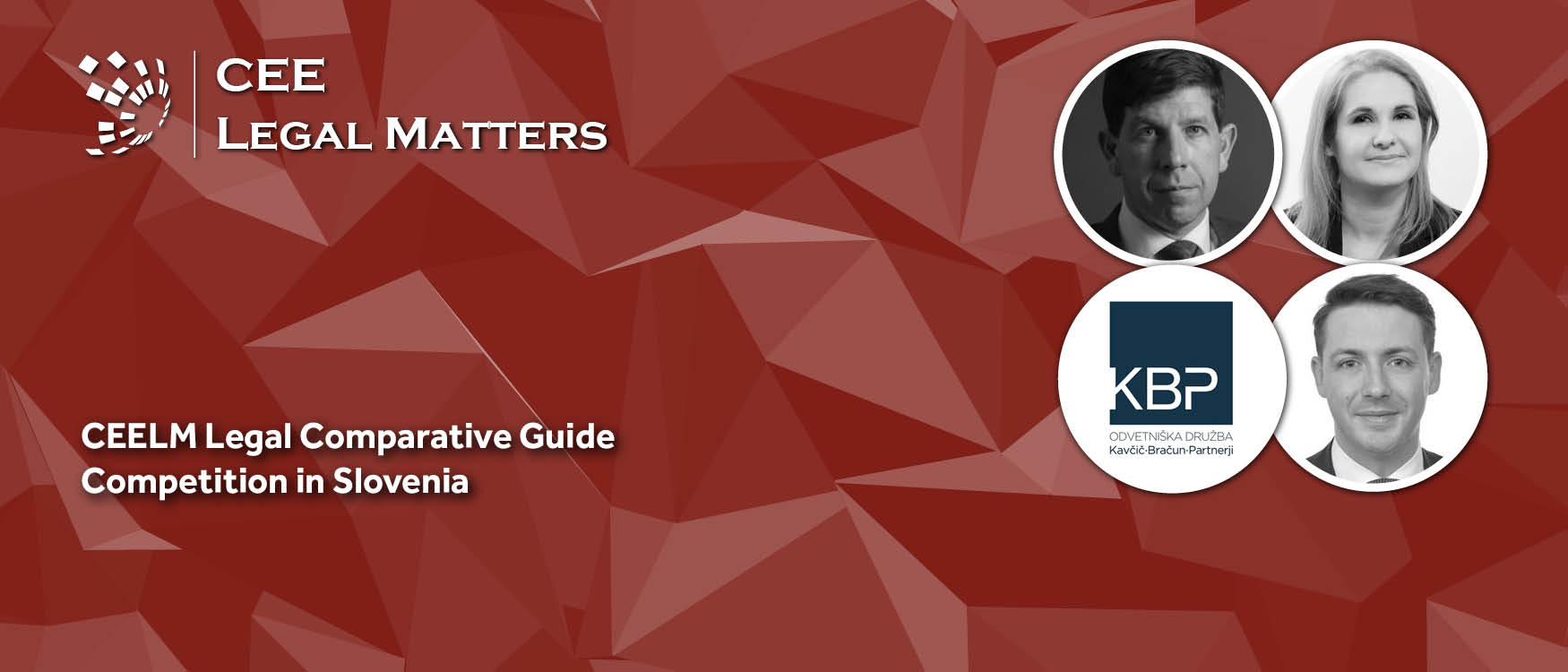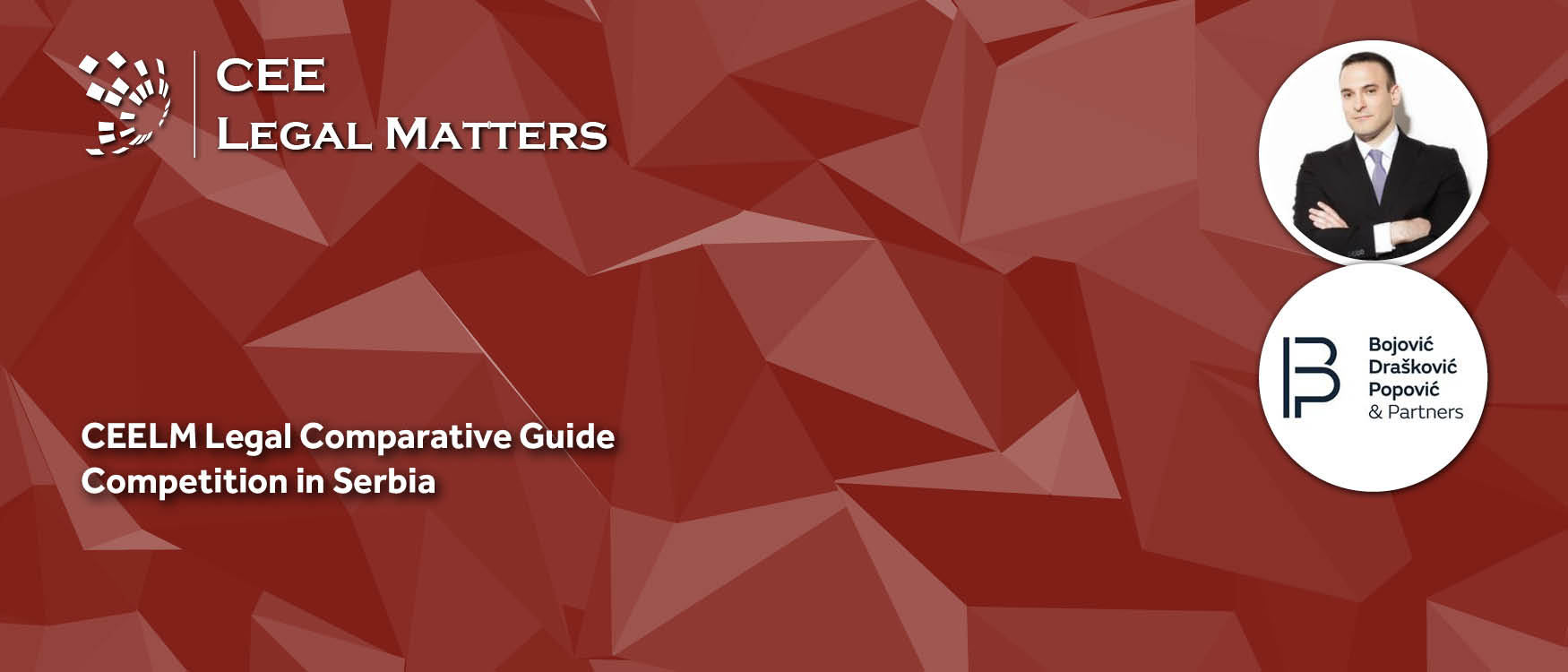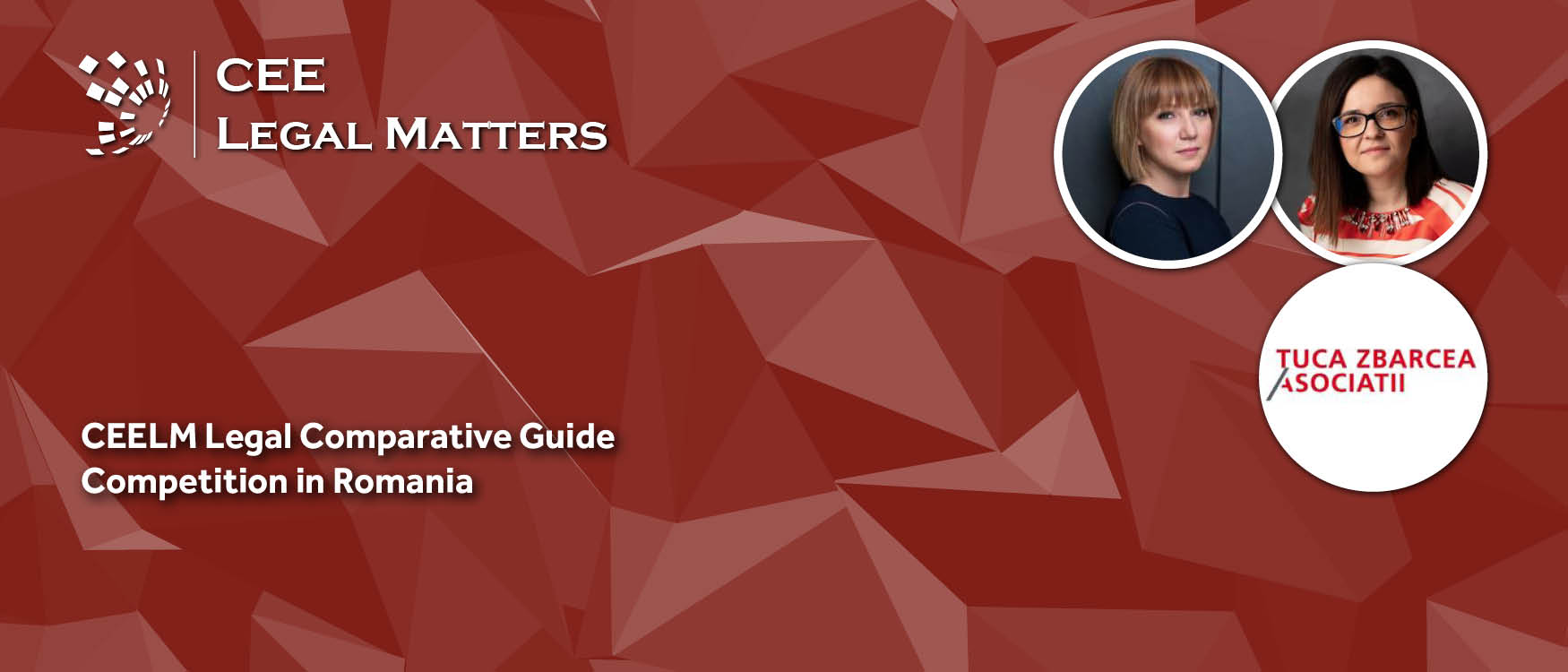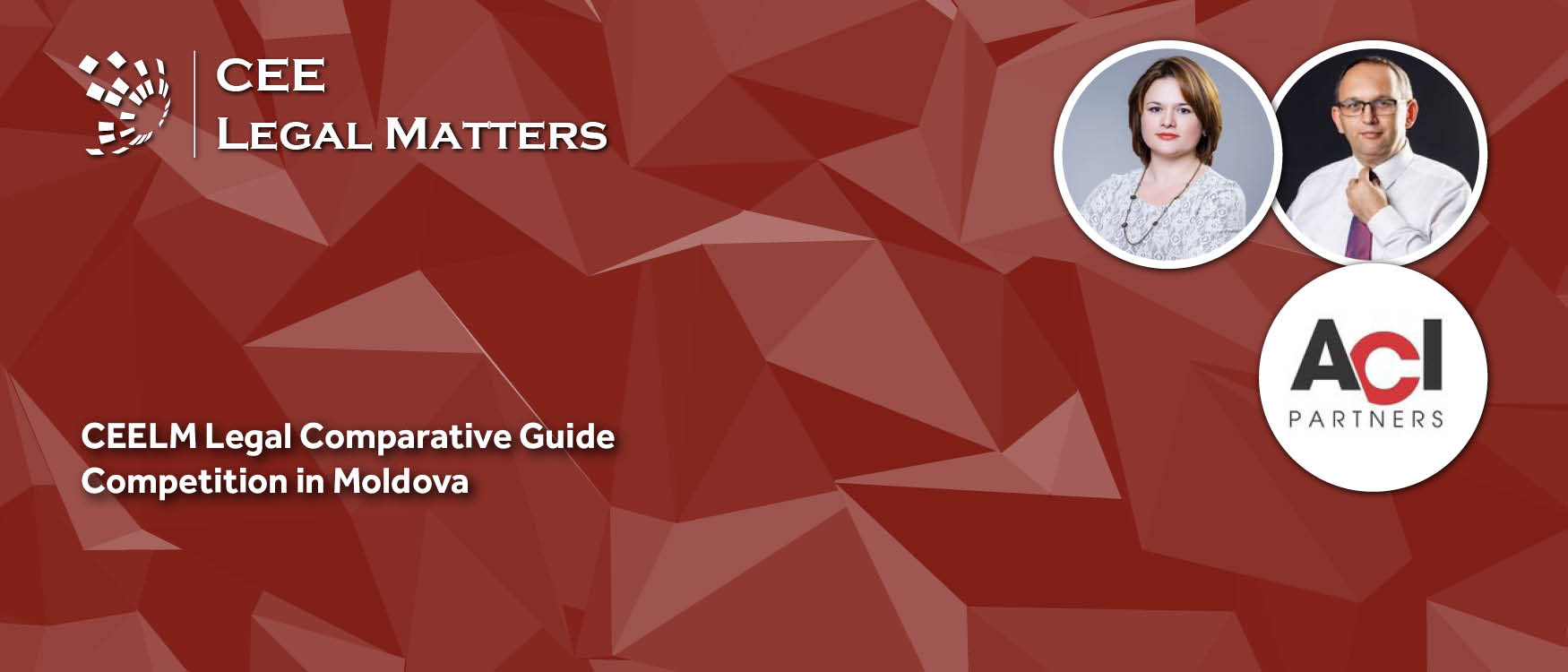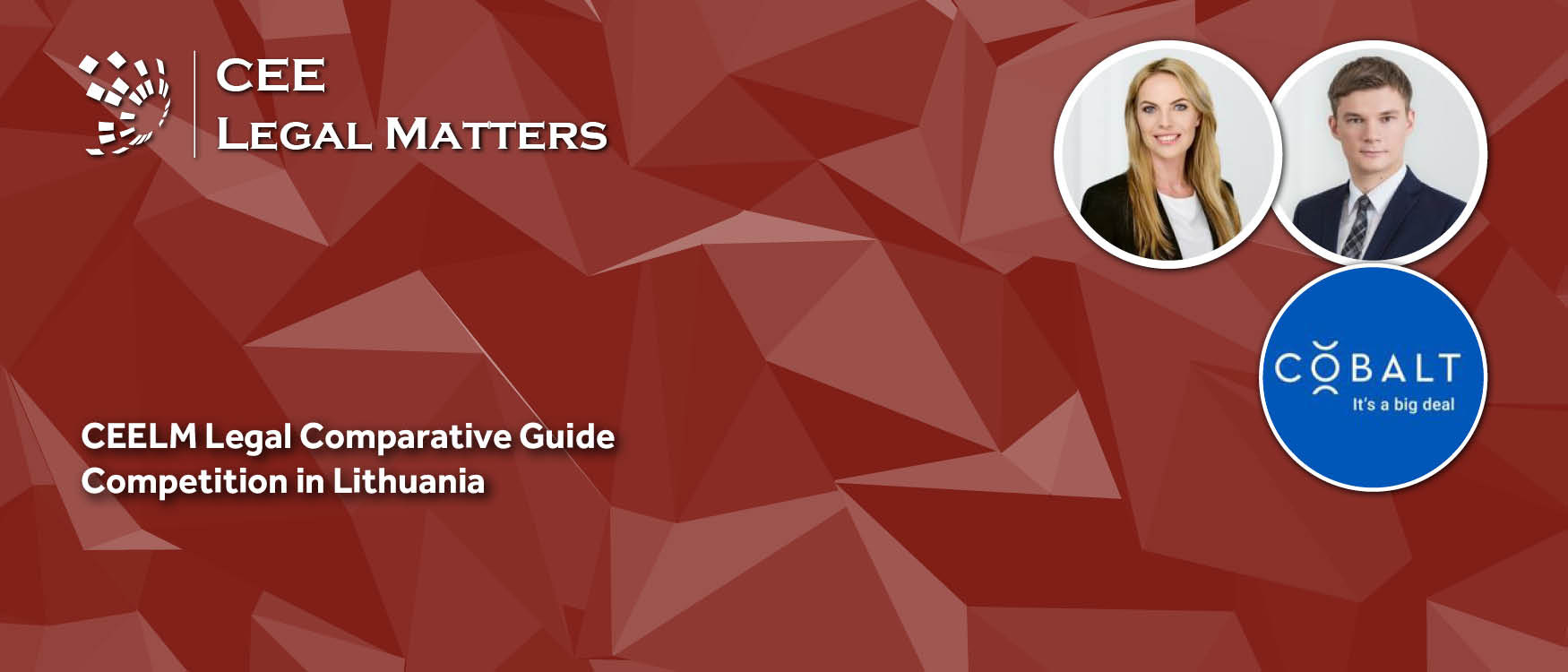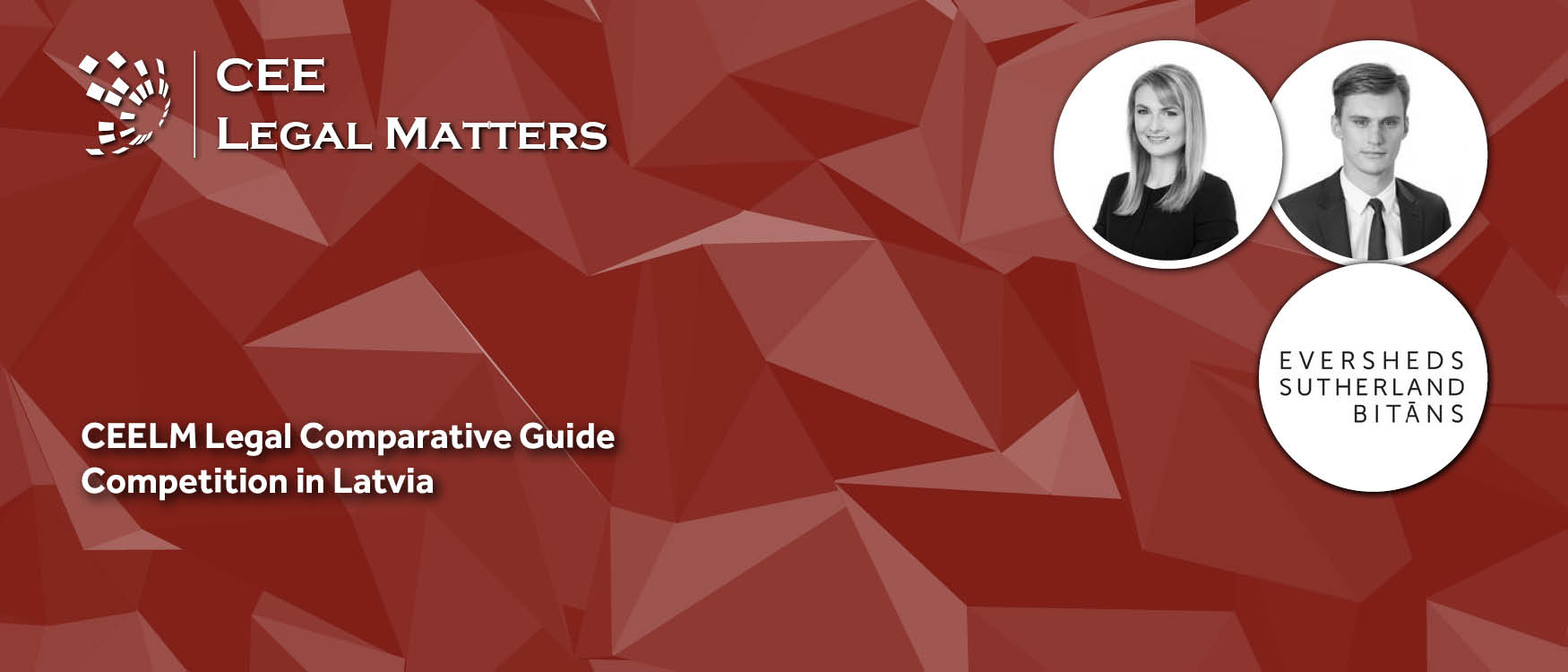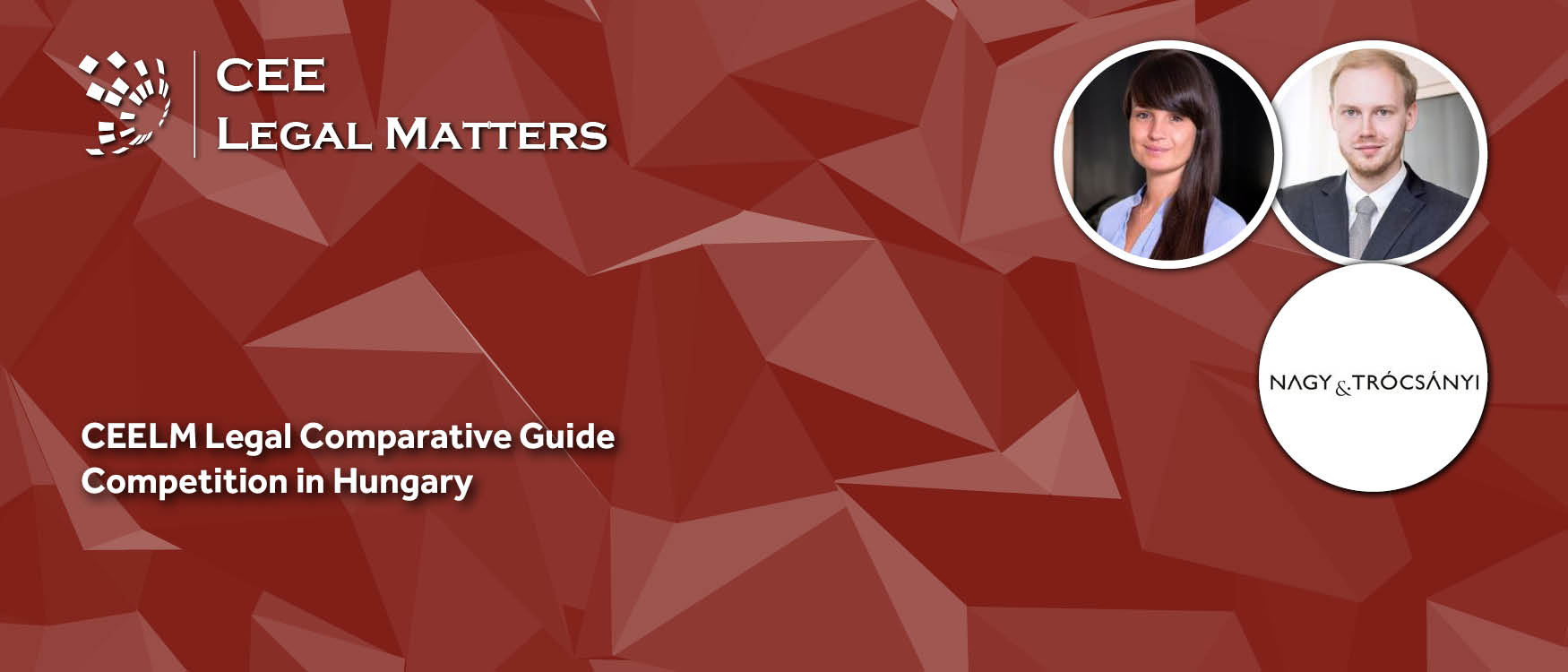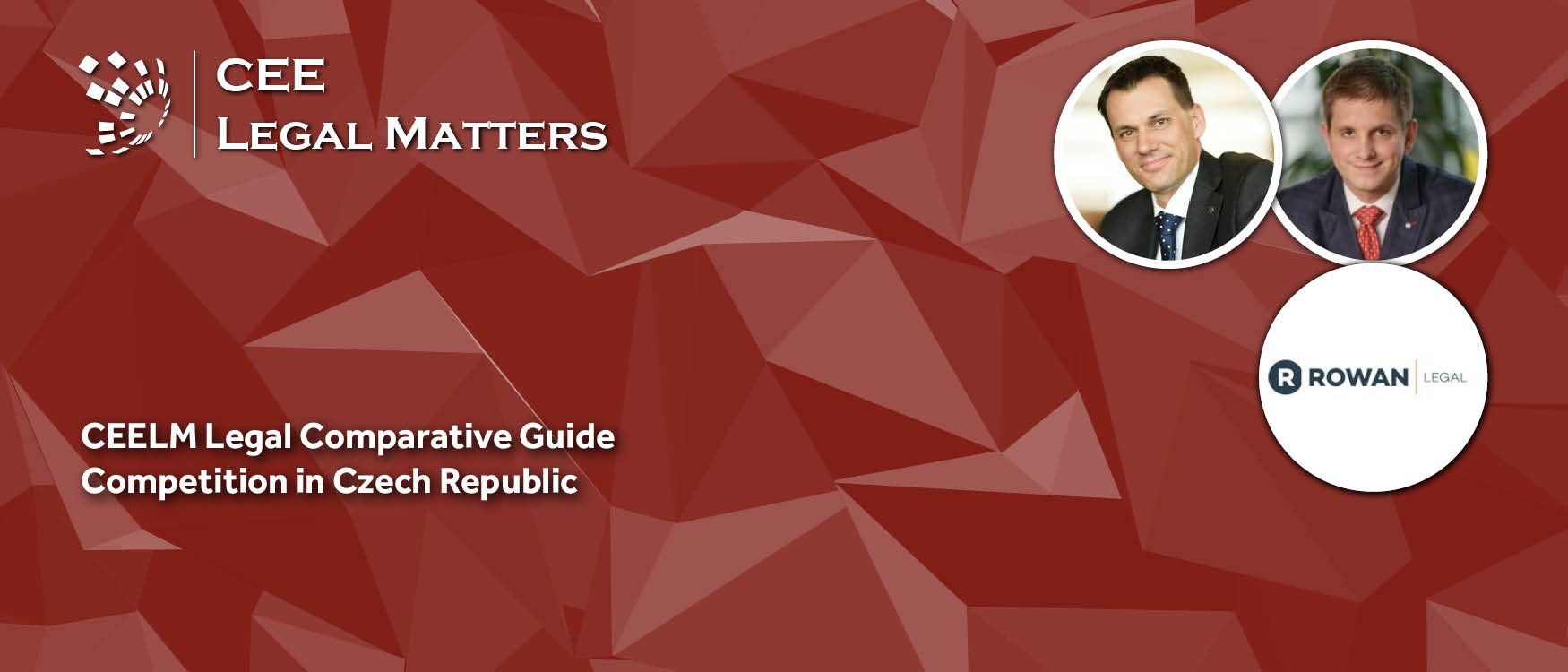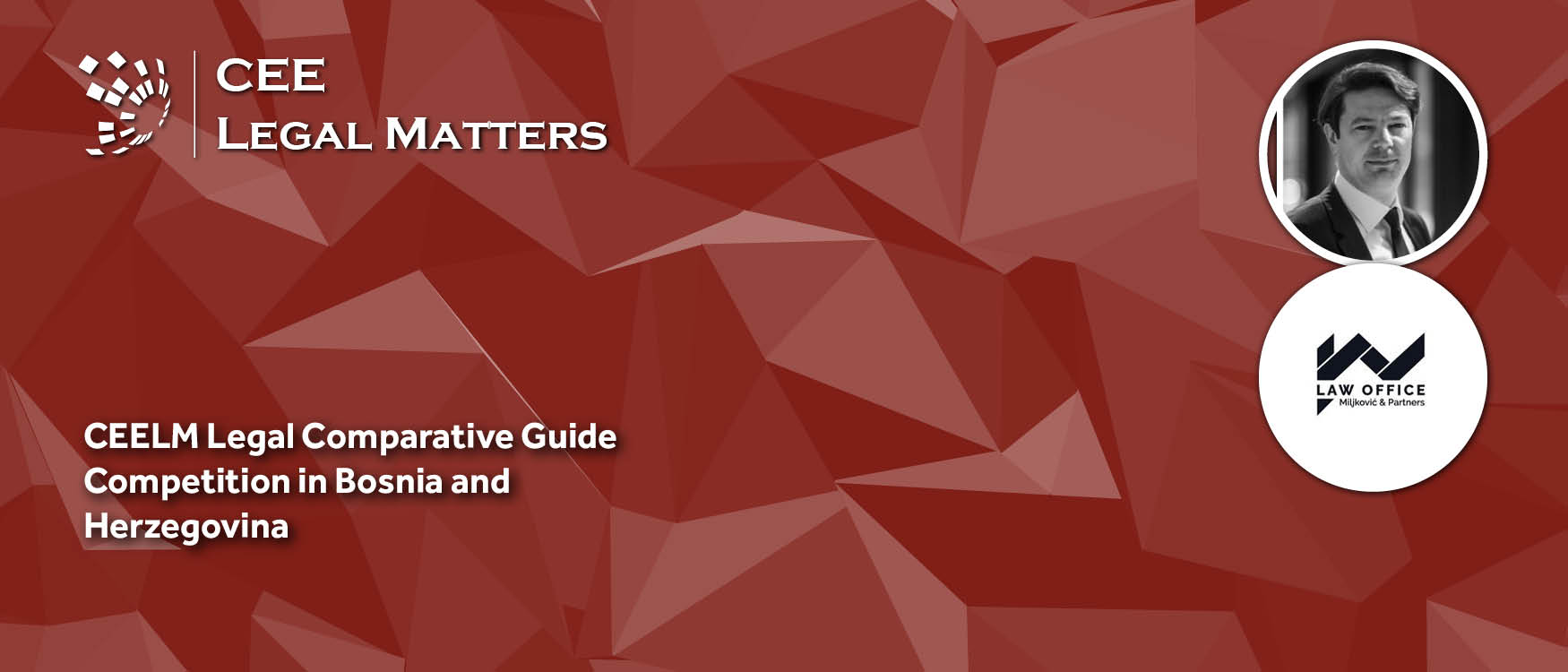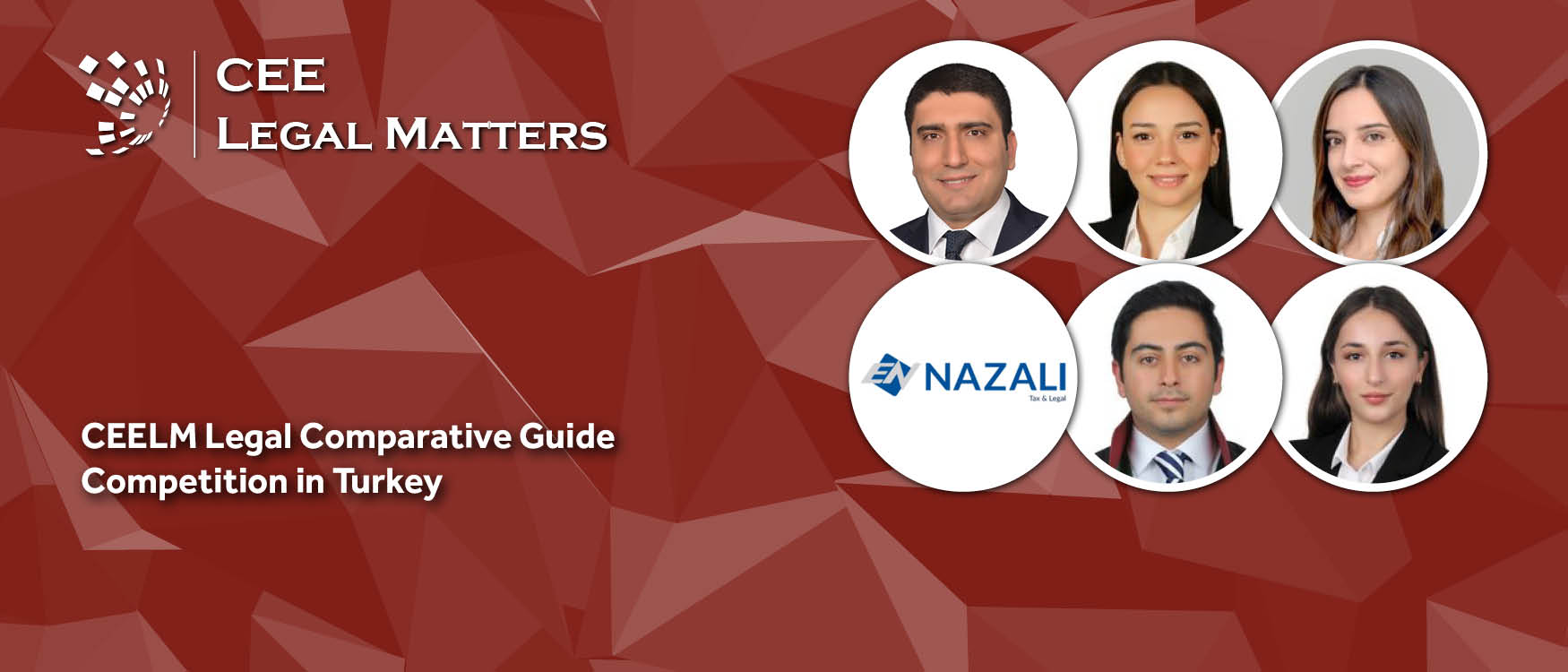Contributed by ODI Law.
1. What are the main competition-related pieces of legislation in North Macedonia?
Merger control and restrictive agreements and practices in North Macedonia are governed by the Protection of Competition Act 2010 (Competition Act). The Competition Act is aligned with Regulation (EC) 139/2004 on the control of concentrations between undertakings and Article 101(1) of the Treaty on the Functioning of the European Union (TFEU). Macedonia's obligation to align its national legislation with EU legislation derives from its status as an EU candidate country, under which the implementation of EU legislation is mandatory. The regulatory framework also comprises regulations adopted by the Macedonian Government, including block exemptions of certain types and categories of agreements, agreements of minor importance (de minimis), and leniency.
The State Aid Control Act 2010 (State Aid Act) governs state aid granting and control in North Macedonia. The State Aid Act is aligned with Articles 107, 108 and 109 of the TFEU and it covers every expenditure and every reduced revenue of the state, in any form, which distorts or has the potential to distort the fair competition and trade within North Macedonia, as well as the trade between North Macedonia and EU member states by giving an economic advantage to a certain undertaking which would not be possible without the awarded state aid, or by favouring the production of certain goods or the provision of certain services.
Under the Stabilisation and Association Agreement concluded between the EU and North Macedonia, EU competition rules can be applied directly in North Macedonia when assessing the forms of distortion of competition that affect the trade between North Macedonia and the EU member states and when it comes to the assessment and transparency of state aid in their entirety, North Macedonia must be treated equally as the EU Member States.
The competent regulatory authority in North Macedonia for the enforcement of the Competition Act and the State Aid Act is the Commission for the Protection of Competition (Commission).
2. Are there any notable recent (last 24 months) updates of the North Macedonia competition legislation?
There were no amendments to the competition legislation in North Macedonia in the last 24 months.
3. What are the main concerns of the national competition authority in terms of agreements between undertakings? How about the sanctioning record of the authority?
The Commission's main concern in terms of restrictive agreements between undertakings is cartels, particularly in public procurement. The term cartel is generally used to describe an informal association or arrangement involving two or more competing companies. In a cartel, the members discuss and exchange information about their businesses or reach agreements about their future conduct, to limit competition between them and increase their own prices or profitability. Cartels are generally conducted covertly and will inevitably involve one or more of the "hardcore" restrictions of competition law: price-fixing, bid-rigging (collusive tendering), the establishment of output restrictions or quotas and/or market-sharing. Therefore, they will, almost certainly, be found to negatively affect competition and have no countervailing benefits. As such, the actions of a cartel will always infringe the Competition Act and will not meet the criteria for exemption.
The Commission has a good track record in enforcing the Competition Act in relation to restrictive agreements, particularly in the electronic communications, pharmaceutical, and food and beverages sectors. In a recent case involving bid-rigging and price-fixing in the pharmaceutical sector, the Commission imposed approximately EUR 1,5 million in fines to Pharma Trade DOOEL Skopje and Dr Panovski AD Skopje. According to the Commission, the companies coordinated in the submission of the bids on the public call and did not reduce the prices offered at electronic auctions in order to distort competition by directly or indirectly fixing sales prices.
4. Which competition law requirements should companies consider when entering into agreements concerning their activities on the North Macedonia territory?
The Competition Act automatically (per se) treats as null and void any agreements and practices that directly or indirectly fix purchase or sale prices or any other commercial conditions, limit or control production, markets, technical development or investment, share markets or source of supply, apply dissimilar conditions to equivalent transactions with other trading parties, placing them in a less favourable competitive position and make the conclusion of contracts conditional on the acceptance of obligations that are unrelated to the subject matter of the contract in question.
The Competition Act applies to written and oral agreements, non-binding arrangements, and other types of informal collusion. The exchange of commercially sensitive information between competitors, without any agreement to act on it, will constitute a breach of the Competition Act. In this context, the agreements or practices do not need to be implemented or affect the market if they were intended to have an anti-competitive effect. Similarly, it does not matter if the agreement or practice was entered into with innocent intent if its effect is anti-competitive.
In general, undertakings must self-assess their agreements and practices and cannot apply for individual exemptions from the Commission. The Competition Act exempts agreements, decisions of associations of undertakings and concerted practices that contribute to the promotion of the production or distribution of goods and services, or to the promotion of technical or economic development, provided that consumers have a proportionate share of the resulting benefit, primarily if they do not impose unnecessary restrictions on the concerned undertakings, or do not allow the possibility to eliminate competition in respect of a substantial part of the products or services in question. Block exemptions apply to technology transfer, licences or know-how agreements, horizontal research and development or specialisation agreements, vertical agreements on exclusive distribution, selective distribution, exclusive purchase and franchise rights, insurance agreements, and agreements on the distribution and servicing of motor vehicles.
Apart from block exemptions, the Competition Act does not apply to agreements between undertakings that do not restrict competition to an appreciable extent, that is, do not exceed the following de minimis market share thresholds a combined market share of the undertakings not exceeding 15% for vertical agreements, and a combined market share of the undertakings not exceeding 10% for horizontal agreements. If it cannot be determined whether the agreement is vertical or horizontal, the de minimis market share threshold of 10% will apply. This exemption also applies where the market share thresholds of 5%, 10%, and 15% of the undertakings concerned have not increased by more than 2% in the last two accounting years.
Whether an agreement or practice infringes the Competition Act is determined after an investigation by the Commission. The Commission can initiate investigations into restrictive agreements or practices on its own initiative or following a request from any third party who suspects a potential infringement of the Competition Act. Third parties can file complaints to the Commission and ask for the initiation of an investigation into potentially restrictive agreements and practices. The Commission is not required to examine all complaints. It has a wide discretion to decide if an investigation is necessary, depending on the economic impact of the alleged infringement, the interests of consumers and competitors, and the gravity of the alleged infringement.
5. Does a leniency policy apply in North Macedonia?
The Commission can grant full immunity/leniency from fines if the undertaking is the first to cooperate and:
- It presents the Commission with evidence facilitating the initiation of infringement proceedings.
- It presents the Commission with evidence to complete pending infringement proceedings, where the infringement proceedings could not be completed without it.
- If the undertaking admits its participation in a restrictive agreement or practice but fails to meet the requirements for full immunity, the Commission can reduce the fine that would otherwise be imposed if the undertaking presents evidence that is essential to reach a final decision on potential infringement. Any reduction of the fine is conditional on the cumulative fulfilment of certain criteria. These include that the undertaking:
- terminates its participation in the restrictive agreements or practices immediately after filing the request for immunity;
- fully, and on a continuous basis, cooperates with the Commission and provides any required information as soon as practicable after a request;
- does not notify the other parties to the restrictive agreement or practice that it has filed a request for immunity;
- does not disclose the existence or the content of the request for immunity, except to foreign authorities, before filing the request for immunity;
- does not destroy, conceal, or forge relevant evidence to establish important facts so the Commission can make a final decision.
The Commission encourages undertakings to contact the Commission as soon as possible before filing a request for immunity. The undertakings can approach the Commission directly or through legal counsel and present their case hypothetically. In addition, undertakings can file a request for immunity to the Commission via e-mail if a hard copy is submitted within three days.
Undertakings can also apply for a marker, holding their place in the queue to obtain full immunity before filing an official request for immunity. The marker is valid for a set period, but if there are strong reasons, the applicant can request an extension to the deadline to submit an application.
6. How is unilateral conduct treated under North Macedonia competition rules?
The prohibition against abuse of a dominant position is set out in the Competition Act, which stipulates that "any abuse of a dominant position in a relevant market or an essential part thereof is prohibited.” There are also sector-specific regulations (outside of the Competition Law) that regulate market power, such as the concept of "significant market power" in the electronic communications sector.
The dominance standard is strictly economic. Socio-political or other non-economic factors are not considered. An undertaking has a dominant position in the relevant market if, as a potential seller or buyer of certain goods and/or services, it has no competitors in the market or has a leading position in it compared to its competitors, in particular taking into account its:
- market share and position;
- financial power;
- access to the sources of supply to the market;
- relationship with other undertakings;
- legal or factual barriers to entry of other undertakings in the market;
- ability to dictate the market conditions given its supply or demand;
- its ability to exclude other competitors from the market by targeting other undertakings.
There is a legal assumption that an undertaking has a dominant position if its share of the relevant market is more than 40% unless the undertaking proves otherwise. Also, there is an assumption that two or more legally independent undertakings share a common dominant position if they act or cooperate in the relevant market (collective dominance). Generally, the collectively dominant undertakings must either have a structural or contractual link or be active in a market that otherwise allows them to coordinate their behaviour.
Broadly, the categories of abuse can be grouped into exclusionary abuses (where a dominant undertaking strategically seeks to exclude its competitors and thereby restricts competition) or exploitative abuses (where a dominant undertaking uses its market power to extract rents from consumers).
Exclusionary abuses are by far the most common type of abuse. The Competition Act lists the following categories of behaviour as an abuse of dominance:
- Directly or indirectly imposing unfair purchase or selling prices, or other unfair trading conditions.
- Limiting production, markets, or technical development to the detriment of consumers.
- Applying dissimilar conditions to equivalent transactions with other trading parties, thereby placing them at a competitive disadvantage.
- Making the conclusion of contracts subject to the acceptance by the other parties of supplementary obligations that, by their nature or according to commercial usage, have no connection with the subject of the contracts.
- Unjustified refusal to trade or incitement and request from other undertakings or associations of undertakings not to buy or sell goods and/or services of a particular undertaking with the intent to harm the undertaking dishonestly.
- Unjustified refusal to allow access to another undertaking in its network or other infrastructure facilities for an appropriate fee if, without the concurrent use, the other undertaking, for legal or factual reasons, will be prevented from acting as a competitor in a particular relevant market.
7. Are there any recent local abuse cases of relevance?
The most notable abuse of dominance cases in North Macedonia involve the two largest local Macedonian breweries – Pivara AD Skopje and Prilepska Pivarnica AD Prilep. The Commission imposed a EUR 5.8 million fine on Pivara AD Skopje and EUR 2.7 million on Prilepska Pivarnica AD Prilep for entering into restrictive agreements with their distributors. Pivara Skopje AD entered into sales and distribution agreements containing resale price maintenance provisions, limiting the distributors to set their resale price freely. Prilepska Pivarnica AD and its authorised distributors entered into restrictive agreements with resale price maintenance provisions and non-compete obligations for an indefinite term. The Commission imposed maximal fines of 10% of the companies' revenues in 2016.
8. What are the consequences of a competition law infringement?
The Commission can impose fines on the undertakings of up to 10% of the undertaking's worldwide annual turnover. The main criteria for setting the level of the fines are the gravity of the infringement, the duration of the infringement, the level of distortion of competition and the effects of the infringement, and any mitigating or aggravating circumstances.
The Commission will typically establish the base amount of the fine and then make adjustments depending on the mitigating or aggravating circumstances. Generally, the base amount of the fine is up to 30% of the turnover of the undertakings on the relevant market that has been affected by the restrictive agreement or practice in the last accounting year. The base amount is then multiplied by the number of years of the infringement and adjusted by considering any mitigating or aggravating circumstances.
The Commission can increase the base amount of the fine if:
- The undertakings have generated exceptionally high turnover from other activities, notwithstanding the turnover generated from the activity in the relevant market in infringement of the Competition Act, to give the fine a deterrent effect.
- The undertakings have been unjustifiably enriched as a result of the infringement, in view of the proportionality of the fine.
- The undertakings can also request a decrease of the fine based on their solvency in a specific social and economic setting. In this situation, the Commission can decrease the fine only if the undertakings concerned provide evidence that the fine might jeopardise the solvency of the undertakings and the value of their assets.
The prime mitigating circumstances that are taken into account by the Commission are that:
- The undertakings have provided evidence indicating that their involvement in the infringement is not appreciable and that it has made efforts to avoid exercising the restrictive agreement or practice in the relevant market.
- The undertakings have effectively cooperated with the Commission, regardless of a pending application for immunity (leniency).
The prime aggravating circumstances that are considered by the Commission are that the undertakings have:
- continued to act in infringement of the Competition Act or have repeated the infringement (under these circumstances, the base amount can be increased by up to 100% for each continued or repeated infringement);
- refused to cooperate or obstructed the Commission in conducting their investigation;
- led or initiated the infringement – the Commission will, in particular, take into account whether the undertaking has instigated other undertakings to take part in the infringement and/or taken any malicious measures against other undertakings to force them to commit to acts that constitute an infringement of the Competition Act.
The Criminal Law 1996 foresees criminal liability and imprisonment from one to ten years for the legal representatives (natural persons) of an undertaking that has entered into restrictive agreements or is involved in agreements or practices resulting in generating substantial profits or causing substantial damage. However, the legal representatives can be released from personal liability if they have admitted or contributed considerably to the discovery of the restrictive agreement or practice.
9. Is there any competition law requirement in case of mergers & acquisitions occurring or impacting the North Macedonia market?
The Competition Act applies only to transactions that qualify as concentrations of capital resulting in a permanent change of control involving undertakings that meet specific turnover and market share thresholds. Under the Competition Act concentrations include transactions where:
- two or more previously independent undertakings (or parts of undertakings) merge;
- one or more undertakings acquire, directly or indirectly, control of one or more other undertakings by purchasing securities or assets, contract, or any other means;
- two or more undertakings create a "full-function" joint venture, that is, a joint venture of two or more independent undertakings that has all the features of an autonomous economic undertaking.
Control is defined as rights, contracts, or any other means that either separately, or combined, and having regard to the considerations of fact and law involved, confer the possibility of exercising a decisive influence on an undertaking. In particular, control can be exercised through the ownership or the right to use all, or part, of the assets of an undertaking or rights or contracts that confer a decisive influence on the composition, voting, or decision-making of the bodies of the undertaking.
In cases of acquisitions of minority interests, the Commission can investigate whether the acquirer can still exercise legal or de facto control over the undertaking through special rights attaching to shares or granted in shareholders' agreements, board representation, ownership, and use of assets and related commercial issues. Since there is no precise shareholding or any other test for assessing whether decisive influence over an undertaking has been obtained, the Commission decides each case on its facts.
Despite a contemplated permanent change of control and the turnover and market share thresholds requirements being met, merger clearance is not required where:
- a bank, an insurance company, or another financial institution, whose business activity includes trading securities, temporarily acquires shares for their ensuing resale within a period of a year from the date of their acquisition and provided that during this period the shareholders' rights are not exercised to influence the competitive behaviour of that undertaking in the market;
- a person acquires control over an undertaking in the capacity of a bankruptcy or as a liquidation administrator;
- an investment fund acquires shares in an undertaking, provided that its shareholders' rights are exercised only to maintain the full value of the investment and not to influence the competitive behaviour of that undertaking in the market.
The thresholds for the application of the merger control regime are relatively low compared to other jurisdictions in Central and Eastern Europe. A notification is required where a transaction that qualifies as a concentration satisfies the following thresholds:
- The aggregate worldwide annual turnover of all the parties in the preceding accounting year exceeded EUR10 million, and at least one of the parties has a registered presence in North Macedonia.
- The aggregate annual turnover of all the parties to the concentration in North Macedonia exceeded EUR2.5 million in the preceding accounting year.
- One of the parties to the concentration has a market share in North Macedonia exceeding 40%, or the parties have a combined market share exceeding 60%.
The turnover of an undertaking is defined as the amount derived from the sale of products or the provision of services (excluding turnover taxes and rebates) in the preceding financial year. In this context, the turnover of the whole group of undertakings (to which the relevant undertaking belongs) is considered.
In a merger involving the acquisition of an undertaking, the seller's turnover is not taken into account, only the turnover of the undertaking being acquired. The turnover of joint ventures is calculated by considering the whole turnover of the parents (and their groups) intending to share control of the joint venture.
10. What is the normal merger review period?
The Competition Act requires the Commission to reach a (Phase I) decision on whether the merger is in compliance with the Competition Act or whether a more in-depth (Phase II) investigation is needed within 25 business days from receipt of a complete notification by the parties to the transaction. The Commission can extend this time limit to up to 35 business days if the parties to the concentration undertake commitments to ensure compliance of the merger with the Competition Act.
If the Commission launches a Phase II investigation, it must decide on the notification within 90 business days from the launch date of the investigation. The Commission can extend this time limit at any time during the Phase II investigation based on an agreement with the parties to the concentration. However, each extension cannot exceed 20 business days.
If the Commission fails to decide within the above time limits (including any extensions, if applicable), the concentration will be deemed to comply with the Competition Act. Exceptionally, the time limits can be waived where the Commission must carry out a dawn raid or obtain information about the undertakings' financial standing, business relationships, and other relevant details for its investigation from other sources (state authorities third parties and others).
11. Are there any fees applicable where transactions are subject to local competition review?
The filing fee for making a notification to the Commission is approximately EUR 100. An additional fee of approximately EUR 500 is payable for issuing the merger clearance by the Commission. The party to the transaction responsible for making the filing to the Commission is also responsible for paying both the filing fee and the fee for issuing the merger clearance.
12. Is there any possibility for companies to obtain State Aid in North Macedonia? If yes, under what conditions?
Companies can obtain state aid in North Macedonia if they operate in the free economic zones, including the Technological Industrial Development Zones (TIDZs) or if their investment obtains the status of “strategic” investment.
TIDZs are intended for highly productive clean manufacturing activities and the development of new technologies. Investors in TIDZs are entitled to personal and corporate income tax exemption for the first 10 years. Investors are exempt from payment of value-added tax and customs duties for goods, raw materials, equipment, and machines. Moreover, up to EUR 500,000 can be granted as an incentive towards building costs depending on the value of the investment and the number of employees. Land in a TIDZ in North Macedonia is available under a long-term lease for a period of up to 99 years. Other benefits include completed infrastructure that enables free connection to natural gas, water, electricity, and access to a main international road network. Investors are also exempt from paying a fee for the preparation of the construction site.
The status of “strategic” investment is awarded to investment projects of at least EUR 100 million on the territory of at least two or more municipalities, at least EUR 50 million in the municipalities with its seat in a city, municipalities in the City of Skopje, and the City of Skopje, or at least EUR 30 million in municipalities with a seat in a village. Additionally, an investment must be in one of the following sectors: energy, transport, telecommunication, tourism, manufacturing, agriculture and food, forester and water economy, health, industrial and technological parks, wastewater and waste management, sport, science, and education, but the status may also be granted in any other sector if the investment exceeds EUR 150 million. The selection of investors is based on an open tender. Once proposals are received, negotiations between the Government and an investor commence towards concluding a special investment project contract. It sets out special conditions and preferential treatment accorded to an investor.
13. What were the major changes brought by the COVID-19 crisis in the field? How likely is it for these changes to stick?
Severely hit by the COVID-19 crisis, the Macedonian economy slipped into a recession in 2020 and a gradual recovery set in as of spring 2021. Estimates indicate that over 82% of companies in North Macedonia were negatively affected by the COVID-19 crisis. The Macedonian Government implemented a number of measures to counter the financial impact of the COVID-19 crisis, including subsidies for employees' salaries in affected sectors, interest-free loans for micro, small and medium-sized enterprises, a decrease of interest rates, freezing of prices of essential food products, abolishing customs fees for critical products (wheat products, sunflower oil, sugar, sanitary products, masks, sanitary and medical uniforms, and others), as well as all customs fees for the import of protective medical equipment such as face masks, gloves and disinfection products and others. These measures will likely be abolished once the COVID-19 crisis is under full control by the Government.

